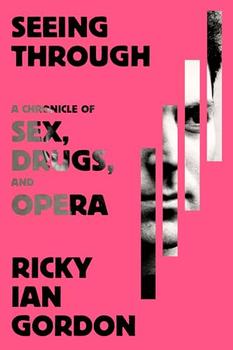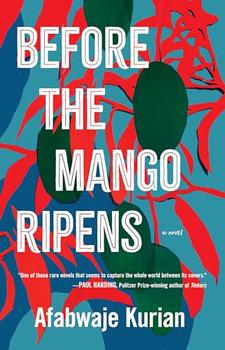
A Chronicle of Sex, Drugs, and Opera
by Ricky Ian Gordon
The true confessions of a working opera composer: an exhilarating story of "a life that comes out of chaos."
At eight years old, Ricky Ian Gordon pulled The Victor Book of Opera off his piano teacher's bookshelf, and his world shifted on its axis. Though scandal, sadness, and confusion would shake that world over the next few decades, its polestar remained constant. Music has been the guiding force of Gordon's life; through it, he has been able not only to survive great sorrow but also to capture the depths of his emotion in song. It is this strength, this technical and visceral genius, that has made him one of our generation's greatest composers.
In Seeing Through, Gordon writes with humor, insight, and incredible candor about his life and work: a tumultuous youth on Long Island, his artistic collaborations and obsessions, the creation of his compositions (including The Grapes of Wrath, 27, Orpheus and Euridice, Intimate Apparel, Ellen West, and more), his addictions and the abuses he endured, and the loss of his partner to AIDS and the devastation of the HIV/AIDS epidemic. As Gordon writes of that period: "We were, thousands of us, Lazarus. We had to rise from the ashes. We didn't have to rebuild our lives, we had to build new ones."
Gordon has succeeded in building a remarkable life, as well as a body of work that bears witness to all he survived in the process―one that will endure as a pivotal chapter in America's songbook.
"The noted composer and doyen of modern opera writes, brilliantly, of the many obstacles life has thrown in his path ... A superb memoir that reveals the pleasures―but far more, the pains―of the creative life." ―Kirkus Reviews (starred review)
"Gordon's rationale—that other artists might benefit from knowing about his 'messy, disgusting, glorious, shameful' evolution—fails to justify this undisciplined ramble. It's a disappointment." ―Publishers Weekly
"Honest and complex ... The memoir's reflections on music, Gordon's creative process, and anecdotes from the artistic arena are especially captivating." ―Carol J. Binkowski, Library Journal
"The immensely talented Ricky Ian Gordon has written a memoir that is at times hilarious, harrowing and most importantly insightful into the mind and process of a serious composer of classical and contemporary musical theater." ―James Lapine, author of Putting It Together: How Stephen Sondheim and I Created "Sunday in the Park with George"
"Ricky Ian Gordon's Seeing Through is a remarkable story about the considerable effort it takes to be an artist and a human being, simultaneously. It's dark, it's funny, it's intimate and it's profound." ―Michael Cunningham, author of Day
"With candor abounding, Ricky Ian Gordon sings the engrossing song of himself. What a lot he has survived! What a lot he has surmounted! I could read him forever." ―Benjamin Taylor, author of Chasing Bright Medusas: A Life of Willa Cather
This information about Seeing Through was first featured
in "The BookBrowse Review" - BookBrowse's membership magazine, and in our weekly "Publishing This Week" newsletter. Publication information is for the USA, and (unless stated otherwise) represents the first print edition. The reviews are necessarily limited to those that were available to us ahead of publication. If you are the publisher or author and feel that they do not properly reflect the range of media opinion now available, send us a message with the mainstream reviews that you would like to see added.
Any "Author Information" displayed below reflects the author's biography at the time this particular book was published.
Ricky Ian Gordon was born in Oceanside, New York, and was raised on Long Island. After studying piano, composition, and acting at Carnegie Mellon University, he settled in New York City, where he quickly emerged as a leading writer of vocal music that spans art song, opera, and musical theater. His songs have been performed and recorded by Renée Fleming, Dawn Upshaw, Nathan Gunn, Judy Collins, Kelli O'Hara, Audra McDonald, Kristin Chenoweth, and many others. His works include Orpheus and Euridice, Morning Star, The Grapes of Wrath, 27, Green Sneakers for Baritone, String Quartet, Empty Chair and Piano, The Garden of the Finzi-Continis, Ellen West, and Intimate Apparel.




Heaven has no rage like love to hatred turned, Nor hell a fury like a woman scorned.
Click Here to find out who said this, as well as discovering other famous literary quotes!
Your guide toexceptional books
BookBrowse seeks out and recommends the best in contemporary fiction and nonfiction—books that not only engage and entertain but also deepen our understanding of ourselves and the world around us.